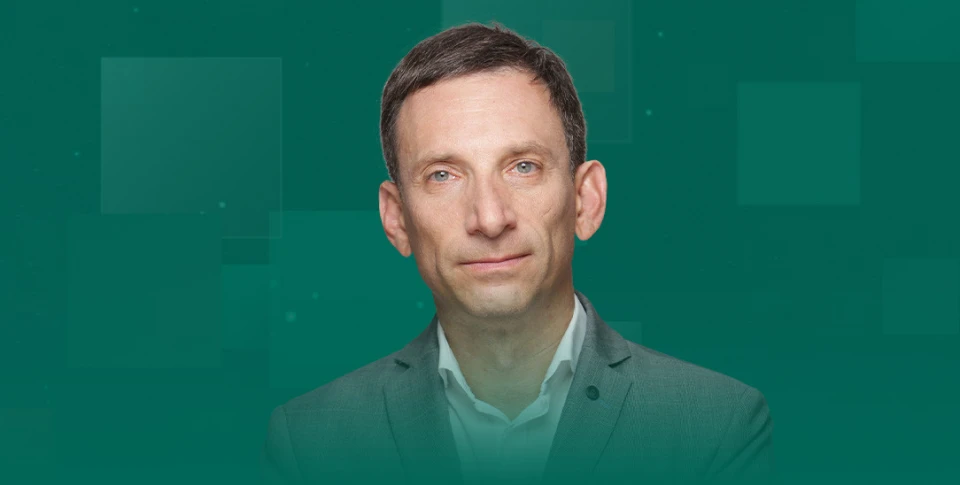
Trump's push to end war in Ukraine seen as weakness in Moscow: Russia rejects 'freeze'
Sergei Naryshkin, head of Russia's Foreign Intelligence Service and a key member of the Security Council, dismissed any idea of 'freezing' the Russian-Ukrainian war, firmly rejecting it as an option
He insisted that the war can only conclude with lasting peace — not just for Russia but for all of Europe. For that peace, however, Naryshkin stressed that the conflict's root cause must first be eliminated.
"In Moscow, the "root cause" is rarely stated outright. Yet, from the demands we've repeatedly heard from Vladimir Putin and other Russian leaders, it’s clear: the existence of Ukraine as a sovereign, independent nation is the issue."
Russia’s leadership sees Ukraine either as part of its so-called “historical territory” or as a subordinate state, similar to Lukashenko’s Belarus. This vision of Ukraine is the ultimate goal of Russia’s ongoing war.
Naturally, Naryshkin reiterated that ending hostilities would require Ukraine’s Donetsk, Luhansk, Kherson, and Zaporizhzhia regions, along with Crimea, to officially join the Russian Federation — each within their current administrative borders. These conditions, unchanged since 2022 when Putin launched the full-scale invasion, echo demands repeatedly issued to Kyiv by the Kremlin. Naryshkin’s words can be read as Moscow’s reply to any peace efforts by the new U.S. administration.
And it’s not just about repeating these long-standing conditions. Naryshkin made it clear that Moscow views any interest in talks as proof that the West acknowledges its failure on the battlefield.
"In Moscow’s eyes, any call for negotiations is not seen as an attempt to end a war that continues to claim thousands of lives. Instead, it’s interpreted as weakness. And when a predator senses weakness, it doesn’t negotiate — it tries to finish you off."
A few months before the new U.S. President takes office, Russia’s position on negotiations with Ukraine and the West is becoming clearer. In Moscow, Donald Trump’s intention to end the Russian-Ukrainian war is seen as a sign of weakness in the incoming American administration. They view it as an opportunity to impose terms that would serve Vladimir Putin and his inner circle. Chief among these terms is the dismantling of Ukraine’s sovereignty — the very goal Putin launched this brutal war to achieve.
It’s crucial to closely follow statements from Russian officials. Their declarations aren’t just about setting the stage for potential negotiations or confusing participants, but rather reflect their genuine belief in their plans and their confidence in achieving them. Any attempt to engage with them only reinforces their conviction that they will prevail. This isn’t the first time Russia’s leadership has displayed outright disregard for the West’s stance.
Putin’s demands haven’t changed since 2022. This became evident when he spoke with German Chancellor Olaf Scholz for the first time in years. The Kremlin’s press release on their conversation showed that Putin’s view of how the war should end remains the same, regardless of who sits in the White House. Instead, Putin is betting that the new U.S. President will adapt to his agenda, not the other way around.
"This mindset extends beyond Ukraine. In a recent speech, Russian official Sergey Naryshkin didn’t limit his accusations to the war in Ukraine. He blamed the West for sabotaging the Nord Stream pipeline and claimed Western intelligence agencies were preparing to destabilize Belarus ahead of its so-called presidential elections — a process firmly under Moscow’s control."
In Russia’s view, it is under constant threat from the West. This paranoia isn’t just about Russia itself or its role in the post-Soviet region; it also applies to its allies, whose territories often serve as launchpads for the Kremlin’s aggression against other nations. Such a worldview leaves no room for constructive dialogue or even a genuine ceasefire — something the new U.S. administration might still hope for.
What we’re witnessing now is a clash between two fundamentally different worldviews. The West — whether it’s Biden, Trump, or any other leader — aims to end the war and avoid further loss of life. Meanwhile, Moscow’s agenda is to prolong the conflict, disregarding the lives of its own people and the suffering it inflicts on Ukraine. The question remains: what tools will Donald Trump have to challenge Putin’s inhumane ambitions and change the course of this war?
About the author. Vitaly Portnikov, journalist, winner of the Shevchenko National Prize of Ukraine.
The editorial board doesn't always share the opinions expressed by blog authors.
- News














































